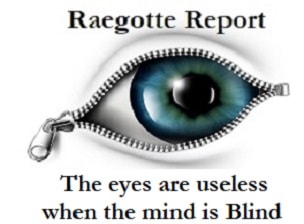Author: Steven Malanga
The views of the Authors are not necessarily the views of Enigmose
Every state and municipal budget in America will take a big hit because of the coronavirus lockdowns, but no public purse is in as much trouble as California’s. Its Department of Finance recently estimated that the Golden State could face a $54 billion shortfall in the fiscal year beginning July 1, which surely must be the largest deficit any state has ever accumulated, surpassing the $40 billion hole that nearly swallowed Sacramento in 2008. Still, though Governor Gavin Newsome said last weekend that the staggering deficit was “a direct result of Covid-19,” that’s clearly not true.
Critics have long warned that the state’s tax base is volatile, being increasingly reliant on wealthy residents and vulnerable to sharp contraction in the next recession. Combine that with California’s spending spree—including expenditures to fix problems that the state’s own bad policies have worsened—and the swing from prosperity to penury isn’t hard to understand.
It’s no exaggeration to say that California—with its 13.3 percent personal income-tax rate, the highest of any state—is the model of progressive fiscal policy. The state also takes a big tax bite out of capital-gains income, another significant source of revenue. In 2017, Californians reported $142 billion in capital gains, by far the largest amount of any state. Two-thirds of that total came from people making more than $1 million. The top 1 percent of California earners now account for about 23 percent of the state’s adjusted gross income but pay 46 percent of the income tax—nearly $50 billion last year, all of which came from an estimated 15,000 households. Before the coronavirus recession hit, California projected that more than 70 percent of its general fund revenues—or $102 billion—would come from personal income taxes. That’s compared with just 25 percent in the 1960s, when the top rate was about half what it is today
California’s problem: the income of the rich is highly variable, based heavily on dividends, capital gains, and bonuses, which mostly vanish in recessions. In the 2008–2009 downturn, for instance, California’s income-tax collections declined by $7 billion—from $50 billion to $43 billion—in one year. They’ve come roaring back, especially in the last few years, as the stock market reached new heights. California added new taxes, bumping up the rate for those earning more than $250,000 a year and increasing the state sales tax. Originally passed as temporary measures, these tax increases were extended in 2016 for another 15 years. That helped fill the till even higher during the recovery but means that any future tax increases will come on top of already-high rates.
California officials blame the projected $54 billion shortfall on the coronavirus shutdown, but steep deficits always loomed in the next recession. Full Article @ City Journal
Coronavirus Color-Revolution: California Declares Nation Statehood as Trump Moves to Quell ‘Mutiny on the Bounty’
This does not mean we should expect an announcement by Governor Newsom that ‘The California Republic is an independent nation-state ’ Yet amazingly, it has been almost verbatim said in this way.
Bloomberg published a stunning piece on April 9th promoting the secession of California from the U.S., in an op-ed by Francis Wilkinson titled Gavin Newsom Declares California a ‘Nation-State’’, which resurrected John C. Calhoun in a neo-confederate argument favoring nullification.
The Bloomberg article details how California Governor Newsom has begun using that term and also related legal constructions in discussing how California will manage the coronavirus response on its own. Read More
Another Pandemic Known as 'Social Justice'
In the last twenty years, a generation of academics and administrators has transformed higher education into an engine of progressive political advocacy
The National Association of Scholars (NAS) has produced a report titled " Social Justice Education in America." Written by David Randall, it defines, describes, and delineates many of the destructive and deceptive ideas behind the innocent-sounding social justice programs that have mushroomed in American institutions of higher learning. Read More


